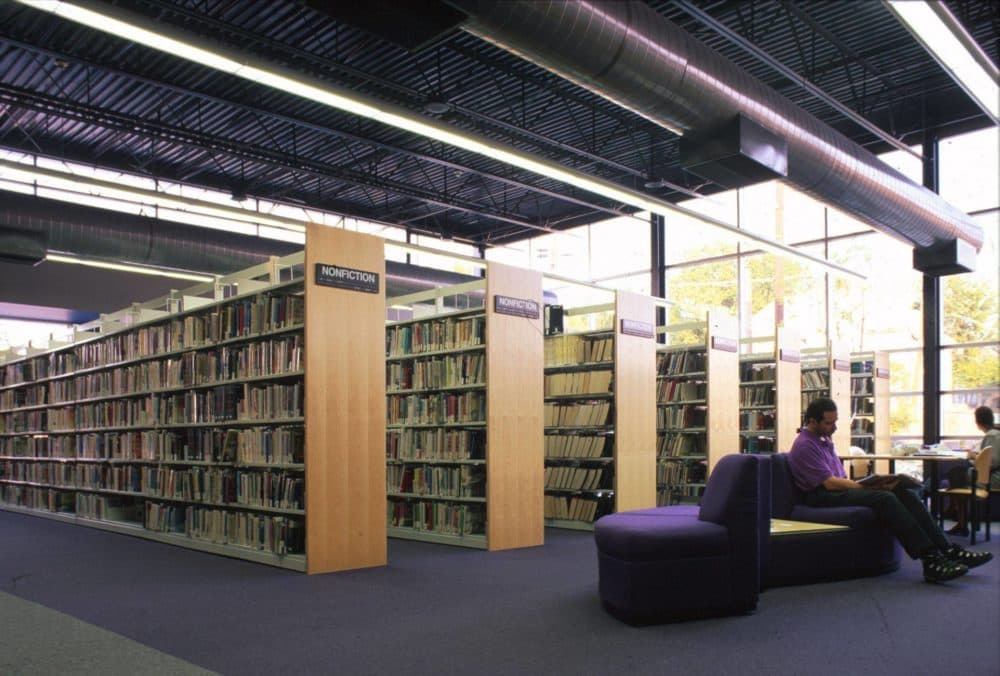Advertisement
Why The Dallas Public Library Wants To Close The Book On Late Fees
Resume
The Dallas Public Library wants to follow the lead of several public libraries around the country and get rid of late fees for overdue books. The city council could vote in the coming weeks, but the proposal has its critics.
Jo Giudice, the city's director of libraries, is not one of them.
Giudice says when she and her staff decided to take a closer look at library statistics, they discovered roughly 50 percent of the system's more than 650,000 cardholders were carrying a fine large enough to prevent them from checking items out.
"It made us stop and pause and think about, the customers who need us the most are usually the people with the least amount of disposable income," Giudice tells Here & Now's Lisa Mullins. "And this was stopping them from coming and using our resources. So that was a wake-up call."
The council of the American Library Association adopted a resolution earlier this year stating its position that library fines create a "barrier" to information. Giudice, a council member, says she agrees and has seen firsthand the kinds of difficult choices library fines can create — especially for low-income families.
"You're harried, you've got things going on in your life, and you come in and you've got your kids with you and you've got a stack of books and some videos, and you want to check out and you're hoping for a little peace that night," she says, "and you get up to the desk and you have a $7 fine, and it blocks you from checking out.
"In many cases, the parent is standing there and they have to make a decision whether they're going to buy groceries that night, or pay the library fine and get some books," she says.
So if there aren't going to be fines, why would anyone ever return a book? Giudice says the idea is there would still, in fact, be a fine — but it would never exceed the cost of replacing the overdue item. Dallas' libraries are also attempting to become more proactive and flexible when it comes to overdue items by auto-renewing them for customers.
"We really want to get into the position where maybe you're bringing things back a couple of days late, and that's OK," she says. "We want to just call you then a 'library user' instead of a 'blocked customer.' "
There are questions about what this more forgiving system might mean for library revenue. Giudice says that's less of a consideration in Dallas, where the library system is not seen as a revenue source for the city.
"The income that we have brought into this system has gone down every year, exponentially," she says. "We used to bring in $600,000 a year 10 years ago. Last year we only brought in $150,000, so what we're bringing in is going down anyway. Now with auto-renewals and e-books, we are already taking away a lot of the fines that we're charging."
Some other library systems remain skeptical of this late-fee forgiveness, arguing the fees offer a tool for teaching responsibility and civility. Giudice, however, says she doesn't see that as being part of Dallas libraries' mission.
"Our mission is to provide materials and education and access to people," she says.
Ashley Bailey produced this interview and edited it for broadcast with Kathleen McKenna. Jack Mitchell adapted it for the web.
This segment aired on April 12, 2019.

